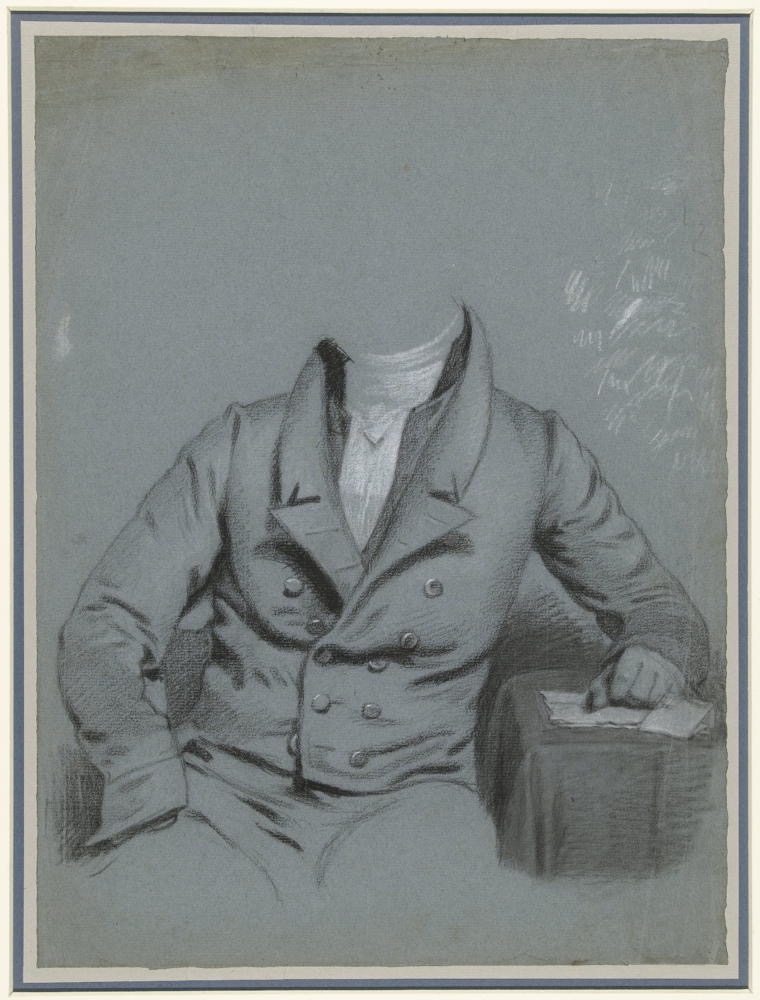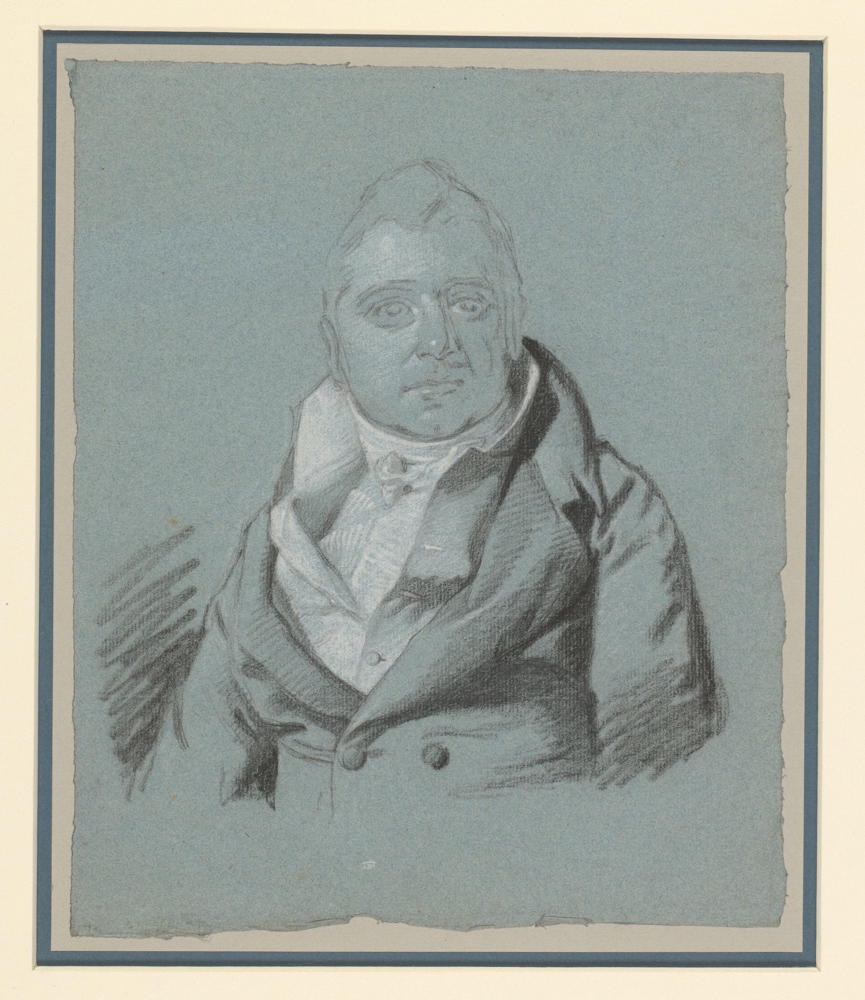Alonely

Figure 1 
Figure 2
Figure 1: Charles Howard Hodges:
Portret van een onbekende man, het hoofd niet getekend
Portrait of an unknown man, the head not drawn
(1774 - 1837)
Figure 2: Charles Howard Hodges:
Portret van onbekende heer
Portrait of unknown gentleman
(1774 - 1837)
"I remain a hale enough fellow, best met by myself …"
In this world at this time, I characterize myself as not so much alone or lonely but Alonely. I spend a great deal of my time alone. I rise extremely early to work in isolation, finishing my efforts just before The Muse rises to begin her day. A short time later, I query her about her schedule, for as a public servant, she almost always has an active agenda: meetings. I listen impasively as I learn what I might expect from the day. Typically, she's gone before noon, returning several times between sessions. She doesn't have an evening meeting every evening, but a late afternoon session will still likely delay supper. We're almost always fed by eight or eight-thirty. I head for bed around nine.
There's little time in any day for us to while away the time together. We get such time exclusively when we're traveling, though even then, she's likely to have to dial into a Zoom session or carry on a couple-hour-long telephone conversation with a constituent or colleague, with me pretending not to be able to hear her side of the proceedings. Then, even when we're seated next to each other, I'm practicing my Alonely. I only rarely ever feel really alone. I have my cats to attend to, or are they attending to me? It's difficult for me to say. Many days, I carry on more conversations with them than I do with anyone else, including myself, for I don't often feel any need to converse with myself, other than in my writing. I more often listen to some earworm musical mantra when operating solo than I carry on anything like a conversation with myself. I always seem to know what I'm intending to say to myself before I speak, so I don't usually bother.
I rarely range very far from The Villa by myself. I much prefer to accompany The Muse when shopping, for instance, and not just because I've proven myself to be a crappy mindreader when fetching something she wants or needs. Even with detailed descriptions, I'm prone to choose the wrong size or brand and thereby fail to satisfy her intention. Excursions work better when I can feign an ignorance I actually hold and defer to her superior judgement. That tactic almost always produces mutual satisfaction! I might dream of ranging out somewhere by myself, but I only rarely take advantage of my often wide-open schedule. I'll find some other distraction rather than wander very far from home. If I'm gonna be Alonely anyway, I figure I might just as well perform that service on familiar ground. The place is used to me being around, anyway.
I tell myself that I prefer bounded solitude. I'd rather feel Alonely in familiar territory than have to cope with feeling disoriented, too. I rarely travel out to grab a beer by myself, or even think of treating myself to a coffee or breakfast. If I have a book to keep me company, I find dining alone tolerable. The phone doesn't quite cut it. To me, people scrolling through their phones in public seems pathetic. It's similar to people applying make-up in public, performing some otherwise perfectly defensible private activity that should never be undertaken in public. Without a sidekick, most excursions don't seem all that worth the effort. My monologues never work as well without an observer present.
I tell myself that my writing serves as my primary outlet for interaction. However pitiful this story might seem, it still rings true enough. I often feel exhausted from being out in the world after spending a couple of hours writing. It's not precisely like performing, but it levies a similar tax on my introverted nature. I tend to require some cave time to recharge my batteries after I've finished a piece of writing. I feel exposed then, as if I've been leading a guided tour through my more private regions. I sometimes can't even stand to read through a piece again because it cut a little closer to bone than I'd intended. The only cure for such exposure seems to be more Alonely time. I can be most marvelously unproductive then, having already paid whatever piper needed paying by completing my writing. I feel temporarily paid up in full and in need of no further redemption. In these times, my Alonely seems like a well-earned reward and not the punishment my more extroverted friends might mistake it for. I remain a hale enough fellow, best met by myself, passing through my neighborhood Alonely.
©2025 by David A. Schmaltz - all rights reserved


